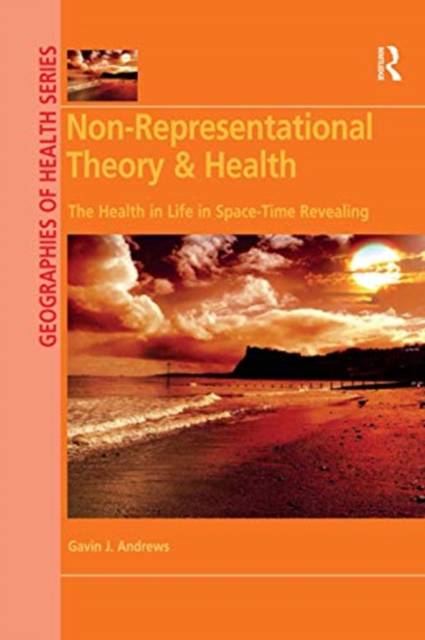
- Retrait gratuit dans votre magasin Club
- 7.000.000 titres dans notre catalogue
- Payer en toute sécurité
- Toujours un magasin près de chez vous
- Retrait gratuit dans votre magasin Club
- 7.000.0000 titres dans notre catalogue
- Payer en toute sécurité
- Toujours un magasin près de chez vous
Description
Non-representational theory is an academic approach that animates the active world; its taking-place. It shows how material, sensory and affective processes combine with conscious thought and agency in the making of everyday life.
This book offers an agenda for health geography, providing the first comprehensive overview of what a 'more-than-representational' health geography looks like. It outlines the basis of a new ontological understanding of health, and explores the key qualities of 'movement-space' that are critical to how health emerges within the assemblages that enable it.
It shows how non-representational events and concerns are key to human happiness and wellbeing, to the experience of health and disease, to activities that add to or detract from health and to health care work, not to mention to the broader initiatives and operation of health institutions and health sciences.
This book bridges the gap between non-representational theory and health research, and provides the groundwork for future developments in the field. It will be of interest to students, researchers and professionals alike working in health, geography and a range of other disciplines.
Spécifications
Parties prenantes
- Auteur(s) :
- Editeur:
Contenu
- Nombre de pages :
- 192
- Langue:
- Anglais
- Collection :
Caractéristiques
- EAN:
- 9780367592639
- Date de parution :
- 30-06-20
- Format:
- Livre broché
- Format numérique:
- Trade paperback (VS)
- Dimensions :
- 156 mm x 233 mm
- Poids :
- 379 g

Les avis
Nous publions uniquement les avis qui respectent les conditions requises. Consultez nos conditions pour les avis.






